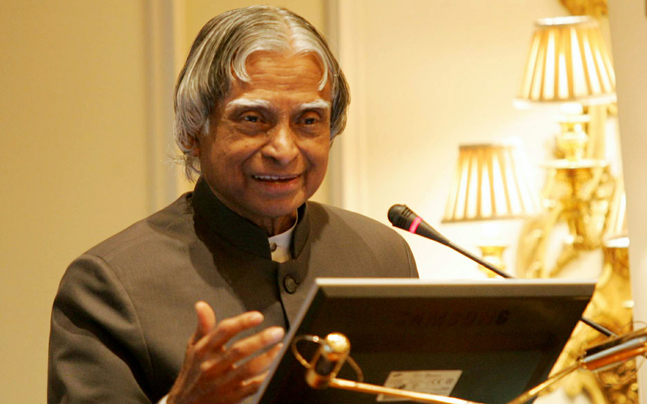In sensational development for India, scientists at NASA named a new organism which was discovered by them after Dr APJ Abdul Kalam.
So far, the new organism, which is a rare a form of a bacteria, has been found only on the International Space Station (ISS) and not anywhere on Earth.

Researchers at the Jet Propulsion Laboratory (JPL), the foremost lab of NASA for work on inter-planetary travel have discovered and studied the new bacteria on the filters of the International Space Station (ISS) and have also named it Solibacillus kalamii to honour the late president, who was a imminent aerospace scientist.
It should be noted that Abdul Kalam had his early training at NASA in the year 1963 before he set up country’s first rocket-launching facility in the fishing village of Thumba in Kerala.
“The name of the bacterium is Solibacillus kalamii, the species name is after Dr Abdul Kalam and genus name is Solibacillus which is a spore forming bacteria,” said Dr Kasthuri Venkateswaran who is a senior-most research scientist, Biotechnology and Planetary Protection Group at JPL.
The filter on which the new bug was discovered remained on board the ISS for around 40 months.
“I am reasonably sure it has hitch hiked to the space station on board some cargo and then survived the hostile conditions of space,” explained Venkateswaran.
“Being a fellow Tamilian, I am aware of the huge contributions by Dr. Kalam,” he said.
Well, new bacteria are usually named after renowned scientists.
Venkateswaran is part of a huge team which is asking that never-ending question “are we alone in the universe?”











